|
West Africa’s long history with British universities has shaped the lives of thousands of its citizens who have studied in the United Kingdom. However, the experiences of these West African students in Britain have not differed through a century of interaction. Louise Owusu-Kwarteng explores these experiences and offers a path to improving them.
COVID-19's grip on parts of the world is tightening, with cases rising each day in some countries. Others, meanwhile, have decided to ease lockdown restrictions and slowly try to return to some sort of normal. The best reads from across the Conversation network on the virus and its implications are available here.
|

The experiences of British based West African students can be improved.
Shutterstock
Louise Owusu-Kwarteng, University of Greenwich
More can be done in to ease transitions for West African students in the United Kingdom.
|

Room lights in a hotel form the shape of a heart in Jakarta on April 25 2020. The lights were turned on as a symbol of support, gratitude and love for medical workers on the front line of handling the COVD-19 pandemic.
Rifqi Riyanto/INA Photo Agency/Sipa USA/AAP
Ahmad Nurhasim, The Conversation
Democracies such as the United States, Italy and Spain, as well as Indonesia, have so far failed to control the spread of the virus.
|
COVID-19
|

Shinjini Das, University of East Anglia
Racism against fellow Indians and classism against the poor characterised India's early response to coronavirus, that is reminiscent of British imperial public health policies.
| |
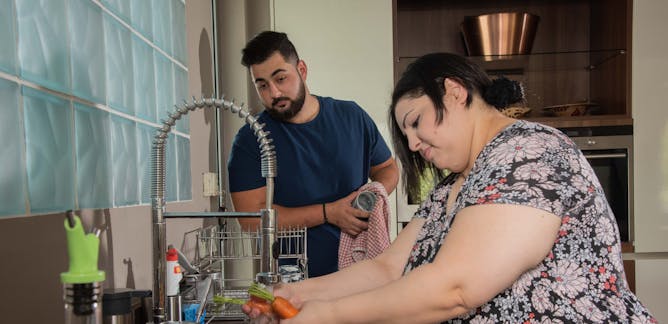
Andrea Pattinson, University of Sydney; Amanda Salis, University of Western Australia
Research pointing to obesity as a significant risk factor for severe COVID-19 illness is growing. There are a few reasons this might be.
|
|
|
Health and Medicine
|
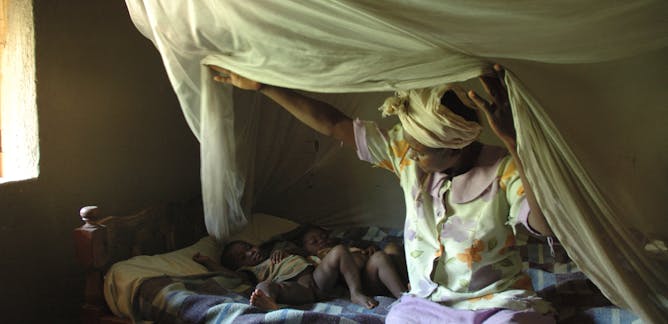
Fredros Okumu, Ifakara Health Institute
If not addressed, there will be many more deaths from malaria and other diseases, indirectly linked to COVID-19 disruptions.
| |

Giulia Cavaliere, Lancaster University
Society shapes people’s preferences and emphasises the value of having genetically related children.
|
|
|
En español
|
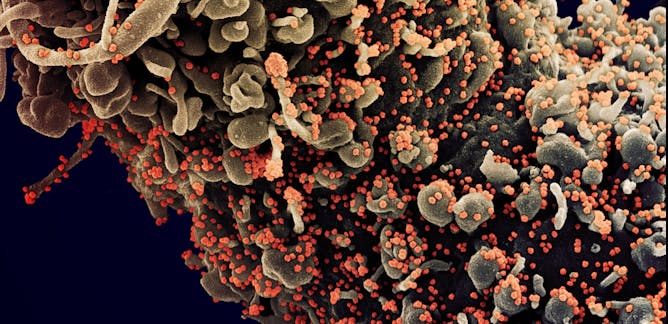
Albert Bosch, Universitat de Barcelona; Amelia Nieto, Centro Nacional de Biotecnología (CNB - CSIC); Ana María Doménech Gómez, Universidad Complutense de Madrid; Carlos Briones, Centro de Astrobiología (INTA-CSIC); Covadonga Alonso Martí, Instituto Nacional de Investigación y Tecnología Agraria y Alimentaria (INIA); Inmaculada Casas Flecha, Instituto de Salud Carlos III; Javier Buesa Gómez, Universitat de València; Jesús Navas Castillo, Instituto de Hortofruticultura Subtropical y Mediterránea "La Mayora" ( IHSM - CSIC) (EELM-CSIC) ; José Antonio López Guerrero, Universidad Autónoma de Madrid; Josep Quer Sivila, Hospital Universitario Vall d'Hebrón, Generalitat de Catalunya; Juan E. Echevarría Mayo, Instituto de Salud Carlos III; Vicente Pallas
Benet, Instituto de Biología Molecular y Celular de Plantas (IBMCP - CSIC)
El coronavirus es un conjunto de malas noticias envueltas en proteínas. Por suerte, cada vez sabemos más sobre él.
| |

Juan Luis Arsuaga, Universidad Complutense de Madrid; María Martinón-Torres, Centro Nacional de Investigación sobre la Evolución Humana (CENIEH)
Homeostasis es la capacidad de un organismo de reajustarse después de una grave alteración. El coronavirus ha provocado una grave crisis que superaremos sin ninguna duda. Otras vendrán en el futuro. ¿Cómo encararlas? Sobre ello reflexionan el premio Príncipe de Asturias de Investigación Científica y Técnica, Juan Luis Arsuaga, y la directora del CENIEH, Marta Martinón-Torres.
|
|
|
En Français
|
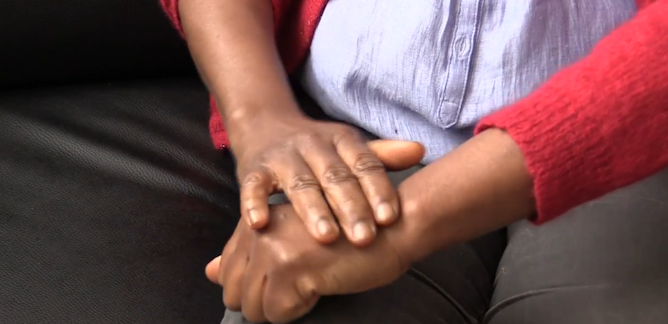
Nina Sahraoui, Fondation Maison des Sciences de l'Homme (FMSH) – USPC
Les infirmières, aides-soignantes et auxiliaires de vie sont en première ligne dans la lutte contre l’épidémie. Engagées sur des contrats précaires, leur statut nécessite une revalorisation urgente.
| |
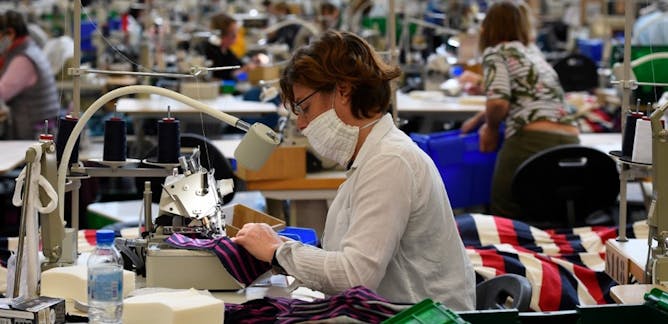
Gilles Crague, École des Ponts ParisTech (ENPC); Denis Carré, Université Paris Nanterre – Université Paris Lumières; Nadine Levratto, Université Paris Nanterre – Université Paris Lumières
Si la réindustrialisation apparaît désormais indispensable, elle exigera des transformations très profondes du modèle économique actuelle et une prise en compte des spécificités territoriales.
|
|
|